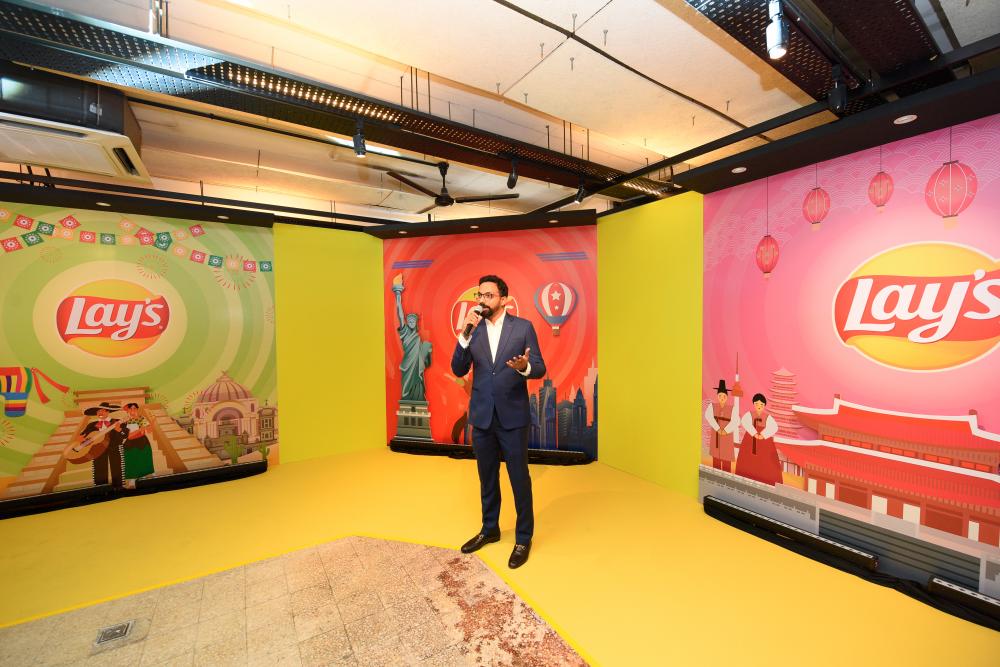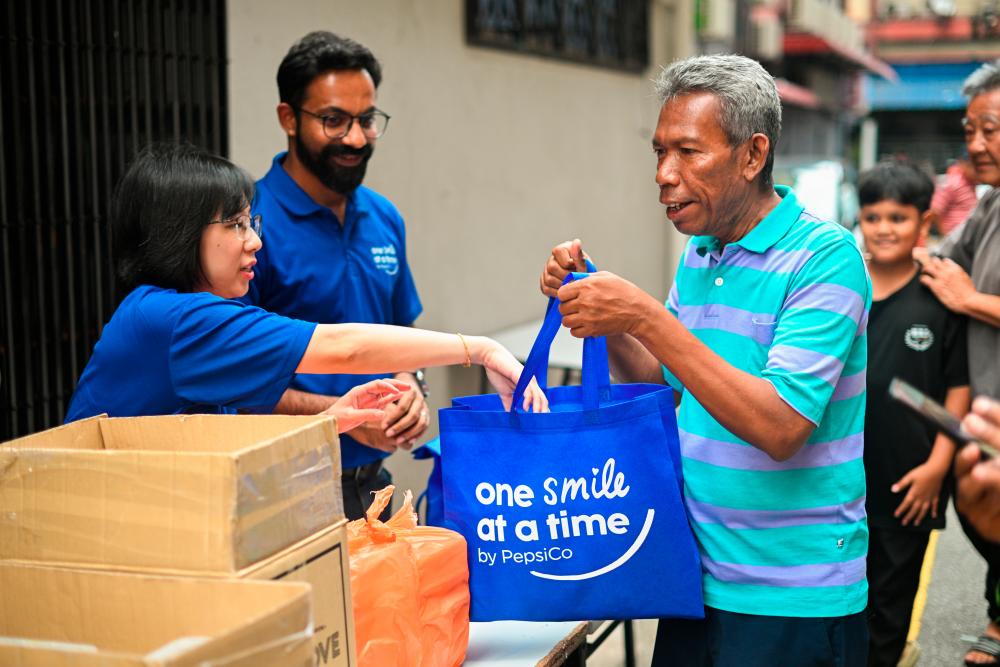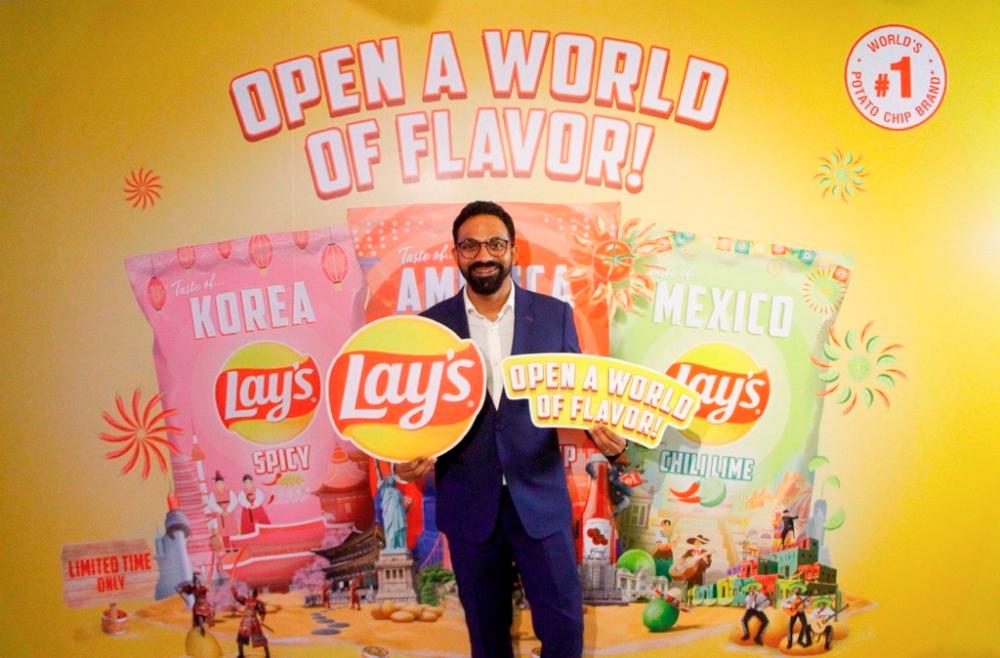GEN Z, born between 1997 and 2012, makes up 26% of Malaysia’s population. As they enter the workforce, they bring disposable income and a strong set of values centred on making a positive impact and seeking value-driven consumption. Brands seeking to connect with Gen Z must adapt to these expectations and PepsiCo has risen to the challenge.
PepsiCo country head and regional e-commerce lead Aditya Ahuja recently spoke to theSun about how the global beverage and snack giant is meeting the demands of this socially conscious generation. From sustainability initiatives to community engagement and affordable nutrition, PepsiCo is transforming its strategies to align with Gen Z’s values.
Building meaningful connections
“Gen Zs are not just a part of the consumer base but they are key decision-makers in households and play a pivotal role in influencing marketing trends,” Aditya explained.
He emphasised Gen Z's expectations extend beyond surface-level actions, making sustainability a cornerstone of the company’s identity. PepsiCo operates under its global PEP positive framework, which focuses on three pillars: positive value chain, positive choices and positive agriculture.
“Under positive value chain, we are working on integrating recyclable PET (polyethylene terephthalate) in over 30 markets globally. This ensures sustainability in our packaging and aligns with the environmental values Gen Z holds dear,” Aditya elaborated.

In Malaysia, these efforts are amplified through partnerships and initiatives that create meaningful local connections.
“Gen Zs look at what we are doing locally and globally and base their purchasing decisions on that. Therefore, we build strong collaborations here and worldwide to create meaningful connections with this generation,” he said.
Addressing food insecurity in Malaysia
Community outreach extends beyond environmental sustainability to address food insecurity. Aditya shared some impactful collaborations in Malaysia. One key initiative is a partnership with The Lost Food Project, an NGO that rescues surplus food and redistributes it to underserved communities.
“Over the past year, we have contributed RM240,000 worth of surplus food. This not only reduces food waste but ensures high-quality, nutritious items reach the people who need them most,” Aditya said.
Another initiative involved working with the Assembly Soup Kitchen, in which volunteers prepared over 1,000 hot meals in a single day for vulnerable groups, including refugee students, homeless and the B40 community in Kuala Lumpur’s Chow Kit area.
“During Hari Raya 2023, we took things a step further. Our Building Real Connections campaign linked consumer engagement with community impact. For every hour Malaysians spent offline reconnecting with loved ones, we donated meal packs capable of sustaining families for up to six weeks,” Aditya added.

Overcoming challenges in community projects
Executing impactful initiatives comes with its challenges.
“Without the support of local communities and partners, none of this would be possible,” Aditya noted, highlighting the critical role of local collaborators and employees.
To enhance engagement, the company introduced family involvement in its projects.
“Instead of our usual family day focused on fun and games, we turned it into a purposeful event. Employees and their families joined forces in the kitchen to prepare hot meals, which we distributed to underserved communities. The experience was heartwarming and many participants said they felt inspired,” Aditya shared.
The company also ensures its initiatives maximise impact.
“It is not about ticking boxes. We prioritise areas where our actions can make a real difference, whether it is accessibility, sustainability or direct support,” he said.
Affordable nutrition tailored to Malaysia
Malaysia’s vibrant food culture shapes the company’s approach to its products. Aditya explained how the company tailors its healthier snack and nutrition offerings to Malaysian tastes.
“Malaysians love their food, it is central to their identity. To cater to modern lifestyles, we have introduced products such as Lay’s variety packs and mini cans, which focus on portion control and mindful snacking,” Aditya said.
The company has also reimagined its nutrition portfolio.
“We have reformulated Quaker cookies and introduced the Quaker 3-in-1 cereal series, making nutrition more accessible throughout the day. Products such as our Quaker 5 Multigrain series have resonated well because they incorporate ingredients that Malaysians find familiar and authentic,” he added.
The company is also experimenting with innovative snacks such as PopCorners, a baked triangular corn snack, and SunBytes, a wavy multigrain chip, both designed for health-conscious consumers.

Digital engagement
Recognising that Gen Z thrives in digital spaces, the company has leveraged platforms such as TikTok to connect with them.
“We launched our first TikTok shop and partnered with live streamers to combine e-commerce, entertainment and education,” Aditya said.
The brand’s campaigns reflect Gen Z’s preferences. For instance, during Chinese New Year, PepsiCo launched the Lay’s Fortune Telling Chips campaign.
“Consumers could scan the chip to reveal their fortune. Thousands of people participated daily, highlighting how culturally relevant and engaging campaigns can create meaningful connections,” Aditya shared.
Nutrition Month initiative, Jom Quaker Fit, also catered to this demographic. The campaign featured events at Sunway Pyramid, where consumers could check their BMI and receive customised recipes featuring oats.
Leadership insights
Having worked across various markets, Aditya emphasised the importance of understanding local consumer behaviour.
“Every country is different and food is deeply tied to identity. It is essential to understand why, how and with whom people consume certain products,” he said.
He also spoke about fostering a collaborative team environment.
“In Malaysia, I noticed a reluctance to voice opinions initially. I have worked to create a safe space for team members to share their ideas fearlessly,” he explained.
This approach has led to innovative campaigns such as the Lay’s Fortune Telling Chips, born from his team’s input.
What’s next for PepsiCo in Malaysia?
Looking ahead, the focus remains on balancing health, affordability and sustainability.
“We are constantly innovating to make snacks healthier, nutrition more accessible and products more convenient for on-the-go lifestyles. Our goal is to make life easier and healthier for our consumers while staying true to PepsiCo’s mission of creating smiles with every sip and bite,” Aditya said.
Through its sustainability efforts, community engagement and product innovation, PepsiCo is setting a new benchmark for connecting with Gen Z and contributing to a better future.









